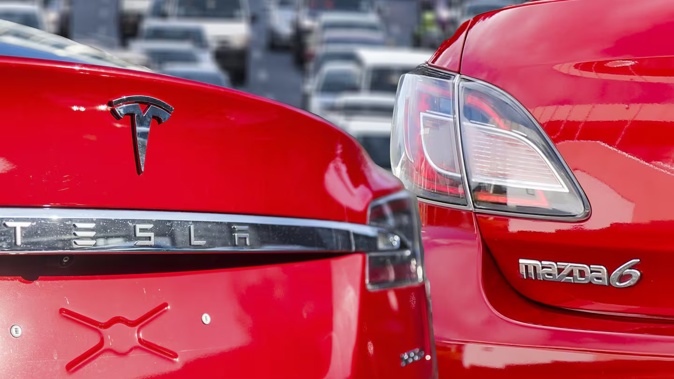
- A new study has revealed a surprising trend: increasing use of electric vehicles (EVs) was linked to increased carbon dioxide emissions.
- The study found almost half of electricity in a country needs to be renewable before EVs contribute to reduced greenhouse gas emissions.
- New Zealand, with over 80% renewable electricity, is well-placed to take advantage of EVs to reduce emissions.
If you are driving an electric vehicle to reduce your carbon footprint, your vehicle is only as good as the electricity network you plug into.
Electric vehicles (EVs) charged using electricity from coal-fired power plants may even create higher emissions than modern petrol cars.
Getting more electric vehicles on the road doesn’t automatically reduce carbon dioxide emissions, according to new research.
Surprisingly, they may even increase emissions.
A new study by researchers from Auckland University and Xiamen University in China shows that the impact of EV adoption on emissions depends on how countries generate electricity.
In countries where most electricity comes from fossil fuels, EVs may be doing more harm than good.

Dr Stephen Poletti is a senior lecturer in the Department of Economics in the University of Auckland Business School.
Associate Professor Stephen Poletti and Simon Tao, a doctoral candidate at the Business School’s Energy Centre, used a statistical model to dig into 15 years of the interplay between energy use, economic development and electric vehicle uptake in 26 countries.
Poletti and Tao found that global EV uptake didn’t result in a significant reduction in carbon dioxide emissions.
They found that often the more EVs a country had, the more the country’s carbon dioxide emissions increased.

Simon Tao is a doctoral candidate at the University of Auckland's Business School's Energy Centre.
“This finding appears counterintuitive,” Tao said, “It challenges the conventional belief that EVs contribute to decarbonisation.”
Take EVs charged using electricity from coal-fired power plants, Poletti said.
“In that case, they may indirectly contribute to higher emissions than modern gasoline or diesel vehicles, especially considering the entire life cycle from production to disposal.”
Reducing carbon dioxide emissions is not the only environmental benefit of EVs.
Kirsten Corson, chair of Drive Electric, said EVs provide numerous additional benefits, including the elimination of tailpipe pollution.
Exhaust from tailpipes reduces air quality and has significant negative health effects.
The study suggests that globally, almost half of electricity needs to come from renewable sources before electric vehicles help reduce carbon dioxide emissions.
Renewable energy, mainly wind, solar and hydro, accounted for only a little more than 30% of the world’s electricity in 2023, so there’s a way to go, said Poletti.
“Electric vehicles are often seen as a silver bullet for climate change, but our results show that’s not the case if the electricity powering them isn’t clean.”
The study suggests New Zealand is well-placed to see EVs reduce emissions, as over 80% of electricity comes from renewable sources.
“This research is a reminder that decarbonising transport can’t happen in isolation,” says Poletti. “EVs are only as green as the grid they plug into.”
Take your Radio, Podcasts and Music with you







